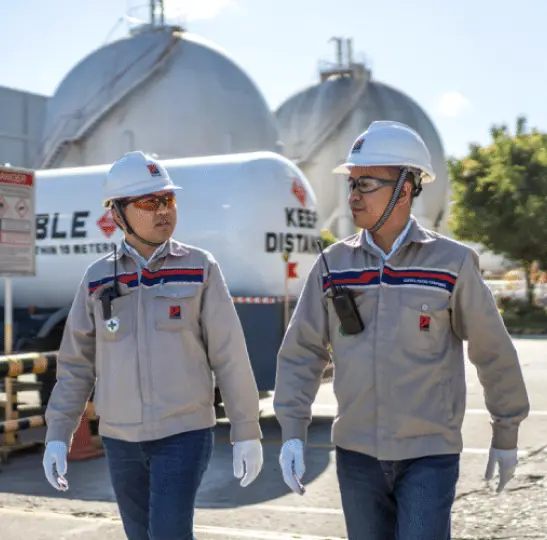Risk Management
Strengthening Risk Resilience in an Evolving Business Landscape
At San Miguel Corporation, we recognize that risk management is a critical pillar in sustaining our long-term growth and resilience. In a rapidly shifting business environment—marked by economic uncertainties, technological advancements, climate risks, and evolving regulatory landscapes—our ability to anticipate, assess, and mitigate risks is essential to our success.
To ensure a proactive and structured approach to risk management, our Enterprise Risk Management (ERM) framework is firmly embedded in our governance structure. Our ERM policy, as outlined in Section 2.2.1.3.2 of the San Miguel Manual on Corporate Governance, provides a structured methodology for identifying, evaluating, and mitigating financial, operational, regulatory, and environmental risks.
Governance and Oversight
Board of Directors
The Board of Directors holds the ultimate responsibility for overseeing the effectiveness of our ERM framework. The Board ensures that risk management is integrated into our strategic decision-making and business operations. It provides direction on key risk areas, including regulatory compliance, financial integrity, and sustainability.

Audit and Risk Oversight Committee
In 2017, SMC strengthened its risk governance by reorganizing the Audit Committee into the Audit and Risk Oversight Committee, expanding its role to encompass ERM oversight. The Committee is tasked with:
Defining the Group’s risk management strategy
Identifying and categorizing key risks, including economic, operational, and ESG-related risks
Developing a risk register and implementing mitigation plans
Ensuring continuous monitoring and reporting of significant risk exposures
Chief Risk Officer
The Chief Risk Officer provides executive leadership in risk management and is responsible for ensuring that ERM principles are embedded across all business units. The CRO works closely with the Board and the Audit and Risk Oversight Committee to assess risk exposure and drive mitigation strategies.
San Miguel Group Audit
Our San Miguel Group Audit (SMGA) plays a crucial role in providing independent assurance on risk controls. It oversees the internal audit functions of all business units, ensuring that risk management strategies align with corporate objectives. The Internal Audit Teams within each business unit conduct both scheduled and ad hoc reviews, reporting key findings to SMGA.
Risk Management Functions
Operational Risk Management
To reinforce operational resilience, Corporate Technical Audit conducts multi-functional audits across SMC’s nationwide facilities. These audits assess:
Utilities and energy management
Mechanical and electrical operations
Environmental compliance and sustainability measures
Occupational health and safety performance
Regulatory adherence and risk exposure
Over the last three years, 169 audits have been conducted across various sites, identifying key risks and opportunities for operational improvements.
Climate Risk Management
As a company operating in a climate-vulnerable country, SMC considers climate-related risks a core priority. We are integrating climate resilience into our risk management to align with regulatory requirements, stakeholder expectations, and global standards.
Our climate risk strategy will address:
Transition risks – Challenges in adapting to a low-carbon economy, including stricter environmental policies, shifting consumer and investor expectations, and the need for new technologies to meet sustainability standards.
Acute physical risks – Typhoons, floods, and extreme heat impacting facilities and supply chains.
Chronic physical risks – Rising temperatures, prolonged droughts, and water scarcity challenges.
To mitigate these risks, SMC is investing in resilient infrastructure, water conservation, and renewable energy, ensuring longterm business sustainability and environmental stewardship.
Procurement Risk Management
Ensuring ethical and sustainable procurement practices, SMC has established the Procurement and Operations Governance Group (POGG) to:
Review and enhance procurement policies and procedures
Conduct compliance and operational audits on procurement activities
Oversee supplier risk management, ensuring alignment with sustainability and ethical sourcing standards
To enhance transparency, POGG facilitates training programs for procurement teams, elevating their skills in sustainable sourcing and risk management.

We continue to strengthen how we manage risk — building on strong governance, while learning to navigate climate, operational,and supply chain challenges in a changing world.
Strengthening Risk Resilience for Long-Term Success
As we navigate a complex and dynamic business landscape, we remain steadfast in our commitment to proactive risk management. Our ERM framework ensures that we remain resilient in the face of uncertainty while fostering business8 continuity, operational excellence, and sustainability leadership.
